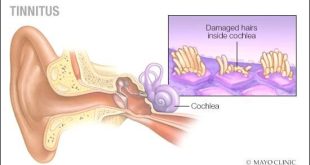The Range Rover Evoque has made a name for itself as a compact luxury SUV that combines style, capability, and innovation. It appeals to drivers who crave the distinctive Range Rover experience in a more compact package. At the heart of this vehicle’s versatility lies its engine options. The Evoque offers a variety of engines that cater to different driving needs, from fuel efficiency to performance. In this article, we’ll explore the various engine available in the Range Rover Evoque Engine Size, their features, and what they bring to the driving experience.
1. Overview of the Range Rover Evoque
Before diving into the specific engine sizes, it’s essential to understand what the Range Rover Evoque represents. Since its launch in 2011, the Evoque has consistently been one of the best-selling models in the Land Rover lineup. The Evoque stands out for its eye-catching design, premium interior, advanced technology, and off-road capabilities. Whether navigating city streets or tackling rugged terrain, the Evoque is built to perform.
The engine options available for the Evoque are crucial to its success. They provide a range of choices that allow buyers to tailor the vehicle to their preferences, whether they prioritize fuel efficiency, power, or a balance of both.
2. Engine Options Across Generations
2.1 First Generation (2011-2018)
The first-generation Range Rover Evoque offered a variety of engine choices, depending on the market and model year. The engines ranged from efficient four-cylinders to more powerful turbocharged variants, giving drivers options that suited various driving styles.
Gasoline Engines:
- 2.0L Si4 I4 Turbocharged: The most common engine in the first-generation Evoque was the 2.0-liter Si4 inline-four turbocharged engine. This engine delivered approximately 240 horsepower, providing a spirited driving experience that combined performance with decent fuel economy. It was paired with a 9-speed automatic transmission, ensuring smooth gear changes and an effortless driving experience.
Diesel Engines (Europe and other markets):
- 2.2L TD4 I4 Diesel: For those who prioritized fuel efficiency, the 2.2-liter TD4 turbocharged diesel engine was an option. This engine produced around 150 horsepower and was known for its impressive torque, making it a reliable choice for long-distance driving.
- 2.2L SD4 I4 Diesel: The more powerful 2.2-liter SD4 diesel engine delivered 190 horsepower and offered a balanced mix of performance and efficiency. Like the TD4, this engine provided ample torque, making it well-suited for off-road adventures and towing.
2.2 Second Generation (2018-Present)
The second-generation Range Rover Engine, launched in 2018, brought with it a more refined design and advanced technology. The engine lineup was also refreshed, offering more efficient and environmentally friendly options without compromising on power or performance.
Gasoline Engines:
- 2.0L P200, P250, and P300 Ingenium I4 Turbocharged: The Ingenium engine family, introduced by Jaguar Land Rover, plays a significant role in the second-generation Evoque. These 2.0-liter turbocharged inline-four engines come in various power outputs:
- P200: Produces 197 horsepower, suitable for daily driving with a focus on fuel economy.
- P250: Offers 246 horsepower, providing a balanced mix of performance and efficiency.
- P300: Delivers 296 horsepower, giving the Evoque a sporty edge and rapid acceleration.
Mild Hybrid Technology (MHEV):
- In line with the automotive industry’s shift toward electrification, the second-generation Evoque also offers mild hybrid (MHEV) versions of the 2.0-liter Ingenium engines. These engines use a 48-volt lithium-ion battery to assist the gasoline engine, reducing emissions and improving fuel efficiency. The MHEV system is available on the P200, P250, and P300 variants, making the Evoque more eco-friendly without compromising on power.
Plug-In Hybrid (PHEV):
- 1.5L P300e PHEV: The latest addition to the Evoque’s engine lineup is the plug-in hybrid (PHEV) variant. This model combines a 1.5-liter three-cylinder Ingenium engine with an electric motor, delivering a total of 309 horsepower. The P300e can travel up to 34 miles on electric power alone, making it ideal for urban commuting while still providing the power and capability expected from a Range Rover.
Diesel Engines (Europe and select markets):
- 2.0L D150, D180, and D240 Ingenium I4 Diesel: The second-generation Evoque also offers a range of diesel engines in markets where they remain popular:
- D150: 150 horsepower, focused on efficiency.
- D180: 180 horsepower, offering a blend of performance and fuel economy.
- D240: 240 horsepower, providing strong torque and power for off-road use and towing.
3. Engine Size and Performance
3.1 Balancing Power and Efficiency
One of the key factors influencing the choice of engine size in the Range Rover Evoque is the balance between power and efficiency. The 2.0-liter engines, both gasoline and diesel, are popular choices because they provide a versatile driving experience. These engines are small enough to offer good fuel economy, especially when paired with mild hybrid technology, yet powerful enough to handle various driving conditions.
For those seeking a more performance-oriented driving experience, the higher-output engines like the P300 or the D240 provide ample power. The P300, with its 296 horsepower, is particularly noteworthy for its quick acceleration and dynamic driving characteristics. However, this comes at the cost of slightly lower fuel efficiency compared to the lower-output models.
3.2 Hybrid Options for a Sustainable Future
The introduction of hybrid technology in the Range Rover Evoque marks a significant step toward sustainability. The mild hybrid systems on the P200, P250, and P300 engines enhance fuel efficiency by recuperating energy during braking and assisting the engine during acceleration. This not only reduces emissions but also provides a smoother driving experience.
The P300e plug-in hybrid takes sustainability a step further by allowing for all-electric driving. With the ability to cover short commutes entirely on electric power, the P300e is ideal for urban environments where zero-emissions driving is becoming increasingly important. Yet, it retains the capability to switch to the gasoline engine for longer journeys, ensuring that the Evoque remains a versatile choice for all driving needs.
4. Engine Size and Off-Road Capabilities
4.1 Torque and Terrain Response
One of the standout features of the Range Rover Evoque is its off-road capability. Despite its compact size, the Evoque inherits the legendary Land Rover DNA, making it adept at tackling rough terrain. The engine options play a critical role in this aspect.
Diesel engines, like the D240, are particularly well-suited for off-roading due to their high torque output. Torque is crucial for maintaining traction on uneven surfaces and climbing steep inclines. The D240, with its 500 Nm of torque, excels in these conditions, making it a preferred choice for drivers who frequently venture off the beaten path.
The gasoline engines, while slightly lower in torque compared to the diesel variants, still provide sufficient power for most off-road scenarios. Additionally, the Terrain Response system, which adjusts the vehicle’s settings based on the driving environment, works seamlessly with all engine types to optimize performance on different surfaces.
4.2 Adaptive Dynamics and All-Wheel Drive
The Evoque’s engine size also impacts its all-wheel-drive system and adaptive dynamics. Larger engines like the P300 and D240 are paired with more advanced all-wheel-drive systems that distribute power more effectively across all four wheels. This ensures that the Evoque maintains grip and stability, even in challenging conditions.
Adaptive Dynamics further enhances the driving experience by monitoring vehicle movements up to 500 times per second and adjusting the dampers accordingly. This system is particularly beneficial when driving off-road, as it helps the vehicle adapt to sudden changes in terrain, ensuring a comfortable and controlled ride.
5. Choosing the Right Engine Size
5.1 Considering Your Driving Needs
When selecting the right engine size for your Range Rover Evoque, it’s essential to consider your driving needs. If you primarily drive in urban areas and value fuel efficiency, the smaller 2.0-liter engines or the 1.5-liter PHEV may be the best choice. These engines provide enough power for city driving while keeping fuel consumption low.
For drivers who enjoy spirited driving or require a vehicle that can handle both city and highway driving with ease, the P250 or P300 engines offer a great balance of power and efficiency. These engines are also well-suited for those who occasionally venture off-road but don’t require the extreme torque of a diesel engine.
If off-roading or towing is a priority, the D240 diesel engine stands out as the optimal choice. Its high torque and robust performance ensure that the Evoque can tackle challenging terrain and heavy loads without breaking a sweat.
5.2 Future-Proofing with Hybrid Technology
As environmental regulations become stricter, choosing a hybrid engine may be a wise decision for future-proofing your vehicle. The mild hybrid options provide a seamless transition to more eco-friendly driving without sacrificing performance, while the P300e plug-in hybrid offers the added benefit of all-electric driving for short distances.
 Daily Blogger News Stay updated with the latest trends and insights. Your reliable source for daily updates and information.
Daily Blogger News Stay updated with the latest trends and insights. Your reliable source for daily updates and information.







